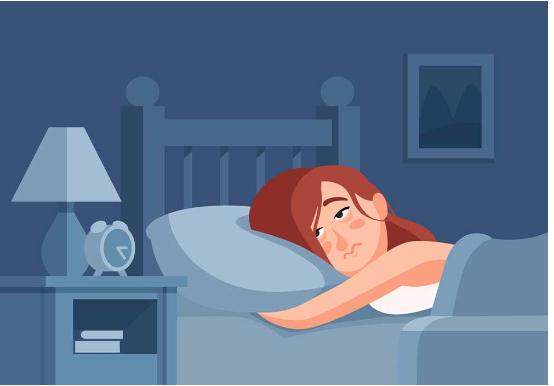Why is sleep important?
Tips to help you sleep at night

“No sleep for you!”
Did you know that without sleep we would die. This is because humans are like batteries and when they don’t charge they don’t work. It can really affect your health. Not getting sleep can affect you in many ways you never thought it could.
Sleep is important because if you don’t sleep it can cause problems in your health. According to the Cleveland Clinic in “Does a bad night’s sleep Affect your health,” a “bad night can contribute to a host of health problems, higher blood pressure to an increased risk of obesity.” Also it can cause your heart rate and blood pressure to increase, which increased the chance of heart attacks, strokes, heart failures, and headaches.
Some examples of how poor sleep can affect your mental health include having a bad mood the next day and daytime sleepiness. According to an article in the Journal of Clinical Sleep Medicine, “Why is sleep important?“ it states, “Sleep problems such as insufficient sleep duration, irregular sleep timing, and insomnia are common among college students, and these problems are associated with anxiety and depression symptoms.” So poor sleep can cause anxiety, depression, and problems with the memory.
Not getting enough sleep can also affect your physical health. Some things that can occur are having slow reactions and not wanting to do normal daily activities. According to an article from the Access Community Health Network, “Reasons why sleep is important,” “Sleep deprivation affects our body’s ability to regulate appetite hormones, so those who have poor sleeping habits tend to have bigger appetites and eat more than those who are not sleep deprived. In fact, a study revealed that adults who are sleep deprived were 55% more likely to become obese.” Lack of sleep can reduce your immune system’s function and in worst case scenarios it can cause car accidents because you’re sleep deprived, causing you to get hurt or hurting others.
Here are some tips to help your sleep schedule:
-
Have a regular wake up time.
-
Put any electronics away 15 minutes before you go to sleep.
-
Take warm baths/showers or read books before bed.
-
Earlier, you should try moving your body to make you tired, like doing a sport or doing exercises.
-
Some doctors say young teens or teenagers should get around 8 to 10 hours of sleep. So have a specific time when you go to sleep.





kasandra • Dec 6, 2022 at 3:01 pm
Sleeping is very important.
Kenya Guevara • Dec 6, 2022 at 3:00 pm
I like this topic because it is very interesting and I think more people should know about this.